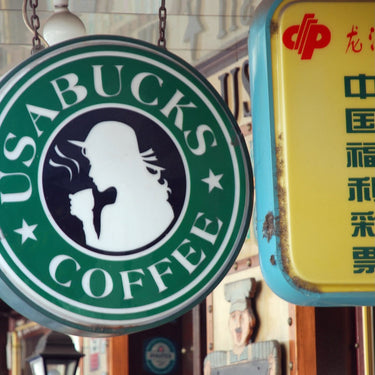At Rave Coffee, we're passionate about sourcing the best quality coffee while supporting sustainable and ethical practices throughout our supply chain.
As a coffee roaster committed to delivering exceptional coffee experiences to our UK customers, we understand the importance of developing a sustainable sourcing strategy for wholesale coffee.
Here, we explore the key elements of sustainable coffee procurement and share insights on how to build ethical coffee sourcing business partnerships that benefit you and the coffee-growing communities.
Why is Sustainable Wholesale Coffee Sourcing Important?
The coffee industry faces numerous challenges like climate change, deforestation, and social inequality.
As a responsible coffee company, it's crucial to recognise the impact our sourcing decisions have on the environment and the livelihoods of coffee farmers. By adopting sustainable coffee sourcing practices, we can:
- Support coffee farmers and their communities
- Promote environmentally friendly farming practices
- Ensure the long-term availability of high-quality coffee beans
- Meet the growing demand for ethically sourced coffee among consumers
- Build a positive reputation for our coffee businesses
What Are the Key Elements of a Sustainable Coffee Sourcing Strategy?
To develop a sustainable sourcing strategy for wholesale coffee, consider the following key elements:
1. Traceability and Transparency
Knowing where your coffee comes from is the first step in building a sustainable coffee supply chain.
Work with importers and suppliers who can provide detailed information about the origin of your green coffee, including the specific farms, cooperatives, or washing stations involved.
Traceability allows you to ensure that the coffee you source is ethically and sustainably produced, and it helps you build direct relationships with coffee growers.
2. Ethical and Fair Trade Practices
Ensure that the coffee you source is produced under fair and ethical conditions. Look for coffee that’s certified as Fairtrade or Rainforest Alliance (especially the UTZ certification), which guarantees that coffee farmers receive fair prices, have safe working conditions, and follow sustainable farming techniques.
By supporting ethical and fair trade practices, you contribute to the well-being of coffee-growing communities and promote social responsibility within the coffee industry.
3. Environmental Sustainability
Choose coffee that’s grown using environmentally friendly practices, such as organic farming, shade-grown cultivation, and sustainable water management. These practices help to preserve biodiversity, reduce soil erosion, and minimise the use of harmful pesticides and fertilisers.
By sourcing coffee from farms that prioritise environmental sustainability, you support the long-term health of coffee-growing ecosystems and the quality of the coffee you offer to your customers.
4. Direct Trade Relationships
Building direct relationships with coffee farmers, cooperatives, and exporters means you have greater control over your coffee sourcing. It also ensures that more of the profits from coffee sales go directly to the growers.
Direct trade lets you work closely with farmers to improve the quality of the coffee, support sustainable farming practices, and invest in community development projects.
5. Continuous Improvement and Education
Sustainable coffee sourcing is an ongoing process that requires continuous learning and improvement.
Stay informed about the latest developments in sustainable coffee procurement, attend industry events, and engage with other coffee professionals to share best practices.
Educate your team and your customers about the importance of sustainable coffee sourcing and the positive impact it has on coffee-growing communities and the environment.
How to Implement a Sustainable Wholesale Coffee Sourcing Strategy
Now that you understand the key elements of a sustainable coffee sourcing strategy, here are some practical steps you can take to implement it in your business:
- Research and identify potential coffee suppliers who align with your sustainability values and can provide traceable, ethically sourced coffee.
- Establish direct relationships with coffee farmers, cooperatives, or exporters to ensure transparency and fair trade practices.
- Develop a set of sustainability criteria for your coffee sourcing, including environmental, social, and economic factors.
- Work with your suppliers to ensure the coffee you source meets your sustainability criteria and is continuously improving.
- Communicate your sustainable sourcing practices to your customers and stakeholders, highlighting the positive impact of your choices on coffee-growing communities and the environment.
- Review and assess your sustainable sourcing strategy regularly to identify areas for improvement and adapt to changing market conditions and sustainability standards.
Rave Coffee's Commitment to Sustainable Wholesale Coffee Sourcing
At Rave Coffee, we're dedicated to sourcing the highest quality coffee while supporting sustainable and ethical practices throughout our supply chain.
We work directly with coffee farmers and cooperatives in countries like Ethiopia, Colombia, and Brazil to ensure traceability and environmental sustainability.
Our commitment to sustainable coffee sourcing is reflected in the exceptional flavour profiles of our single-origin coffees and blends, which are freshly roasted in our UK roastery and delivered to coffee lovers nationwide.
Whether you're a wholesale customer looking to source sustainable coffee for your business or a coffee enthusiast seeking ethically sourced beans for your home brewing, Rave Coffee is your partner in sustainable coffee enjoyment. Contact us today to learn more about our sustainable sourcing practices.






